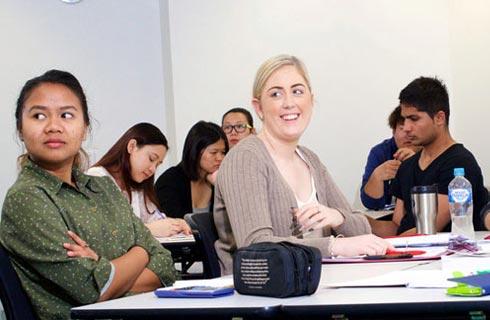药学硕士
Master of Pharmacy

学历文凭
Masters Degree (Coursework)

专业院系
Graduate School of Health

开学时间

课程时长

课程学费

国际学生入学条件
IDP—雅思考试联合主办方

雅思考试总分
7.0
了解更多
雅思考试指南
- 雅思总分:7
- 托福网考总分:94
- 托福笔试总分:584
- 其他语言考试:PTE 65
CRICOS代码: 074915M
申请截止日期: 请与IDP顾问联系以获取详细信息。
课程简介
The Master of Pharmacy is an accredited two-year graduate-entry degree leading to eligibility for registration as a pharmacist. Innovative and practice-based in approach, the course builds on students' strong scientific foundation to provide specialist, comprehensive knowledge relevant to contemporary pharmacy practice. In addition to the pharmaceutical sciences, this includes professional pharmacy services, integrated therapeutics and the unique capstone subject, 96014 Molecule to Market. Two elective subjects provide students with the opportunity to individualise their studies.Developed by leading pharmacy academics and an expert educational designer, the course's subject matter is delivered in an integrated, student-focused manner, making use of cutting-edge technologies and strong links with the pharmacy profession. Expert guest lecturers and practitioner teachers are utilised throughout the course to ensure relevance and real-world application of content.CareersCareer options include: community pharmacy; professional pharmacy services; hospital pharmacy; drug research, design and development; professional roles in pharmaceutical industry; primary health care; consultancy; education; government and policy; the armed forces; and non-profit organisations.
相关申请
 预科
预科 奖学金
奖学金 实习机会
实习机会 在校学习
在校学习 跨境学习
跨境学习 校园授课-线上开始
校园授课-线上开始 在线/远程学习
在线/远程学习
学校排名

世界排名196
数据源:泰晤士高等教育世界大学排名
关于悉尼科技大学

悉尼科技大学(UTS)是世界排名前100的大学之一(QS 2025),对于任何希望提升职业前景并在充满活力的环境中学习的学生来说,这都是一个很好的选择。UTS的学位包括实地考察、案例研究和其他实践经验。学科与行业相结合,为学生提供相关技能。研究项目将学生与所在领域的顶尖人才联系起来。作为一所高级研究型大学,学生可以向在各自行业提供丰富经验的专家学习。该大学提供相应的设施,其空间旨在模拟所有学院学生的真实工作环境。UTS位于悉尼市中心,悉尼是世界第六大学生城市(QS 2025)。在这里,学生们可以轻松地在学习、工作和休闲之间切换。UTS就在中央车站旁边,所以学生们可以跳上火车或公共汽车在城市里四处逛逛,享受悉尼提供的一切。UTS提供: 国际学生支持中心 英语语言与学习支持服务 职业服务 医疗和心理健康支持 住宿支持 180多个学生俱乐部
本校相关课程

全球研究学士
学历文凭
Bachelor Degree
开学日期
课程费用总额


信息技术科学学士学位
学历文凭
Dual Degree
开学日期
课程费用总额


网络工作研究生证书
学历文凭
Graduate Certificate
开学日期
课程费用总额


音乐与声音设计学士国际研究文学士
学历文凭
Dual Degree
开学日期
课程费用总额


音乐和声音设计学士学位
学历文凭
Bachelor Degree
开学日期
课程费用总额


室内建筑设计学士学位
学历文凭
Bachelor Degree
开学日期
课程费用总额

其他相关课程

药学理学硕士
 滑铁卢大学
滑铁卢大学学历文凭
Masters Degree
开学日期
课程费用总额


药学科学学士学位
 达尔豪斯大学
达尔豪斯大学学历文凭
Bachelor Degree
开学日期
课程费用总额


药剂师文凭
 尼亚加拉学院
尼亚加拉学院学历文凭
Bachelor Degree
开学日期
课程费用总额


社区药学助理证书
 尼亚加拉学院
尼亚加拉学院学历文凭
Bachelor Degree
开学日期
课程费用总额


药剂师文凭
 汉博学院
汉博学院学历文凭
Bachelor Degree
开学日期
课程费用总额


药学理学硕士
 纽芬兰纪念大学
纽芬兰纪念大学学历文凭
Masters Degree
开学日期
课程费用总额





















 澳大利亚
澳大利亚




